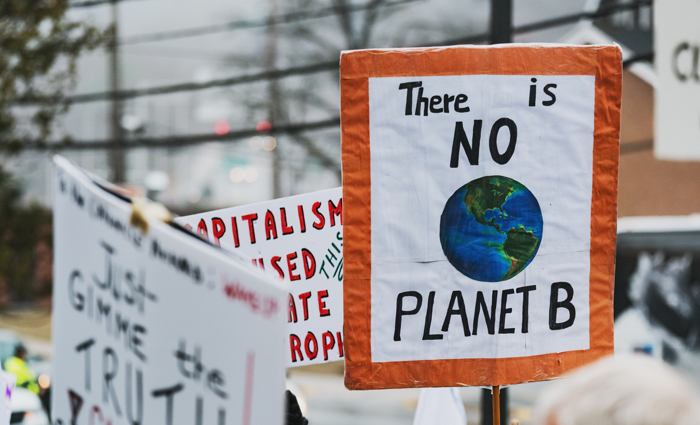
A new statement, published today in BioScience, a publication from the American Institute of Biological Sciences, has declared today "clearly and unequivocally that planet Earth is facing a climate emergency". And the statement has the backing of more than 11,000 scientists from 153 nations around the world.
 It is now exactly 40 years since scientists from 50 nations met in Geneva, Switzerland, for the First World Climate Conference. They agreed then that it was necessary to act against climate change. Similar agreements were made in Rio de Janeiro in 1992, with the 1997 Kyoto Protocol and the 2015 Paris Agreement. Yet as the scientists' statement points out, “Despite 40 years of global climate negotiations, with few exceptions, we have have largely failed to address this predicament."
It is now exactly 40 years since scientists from 50 nations met in Geneva, Switzerland, for the First World Climate Conference. They agreed then that it was necessary to act against climate change. Similar agreements were made in Rio de Janeiro in 1992, with the 1997 Kyoto Protocol and the 2015 Paris Agreement. Yet as the scientists' statement points out, “Despite 40 years of global climate negotiations, with few exceptions, we have have largely failed to address this predicament."
They go on to point out that the world's greenhouse gas emissions are still rising and that significant action needs to be taken to prevent "untold suffering" due to the climate crisis. The statement continues, “To secure a sustainable future, we must change how we live." And achieving this will mean "major transformations in the ways our global society functions and interacts with natural ecosystems.”
Among the many urgent changes the scientists suggest are reducing our meat consumption and eating more plant-based foods to reduce short-lived pollutants like methane, which is more than 80 times more potent a greenhouse gas as carbon dioxide over a 20 year period; leaving fossil fuels in the ground and shifting to a carbon-free economy; halting forest destruction and increasing reforestation on a huge scale; doing much more to protect the natural world, including coral reefs, forests, wetlands, grasslands and peatlands; stabilising the world's population, which is currently growing at a rate of around 80 million a year; and shifting global goals from gross domestic product (GDP) growth to sustaining ecosystems and improving human wellbeing by reducing inequality and prioritising basic needs.
There is still hope and much to be gained from acting swiftly. The scientists conclude "The good news is that such transformative change, with social and economic justice for all, promises far greater human well-being than does business as usual. We believe that the prospects will be greatest if decision-makers and all of humanity promptly respond to this warning and declaration of a climate emergency and act to sustain life on planet Earth, our only home."
